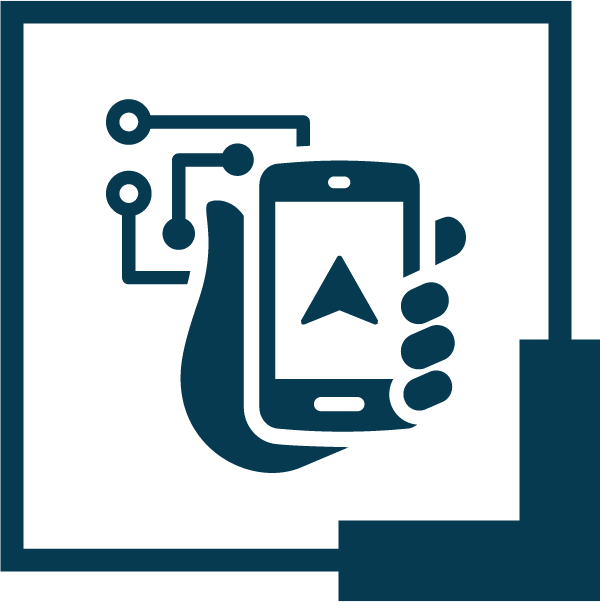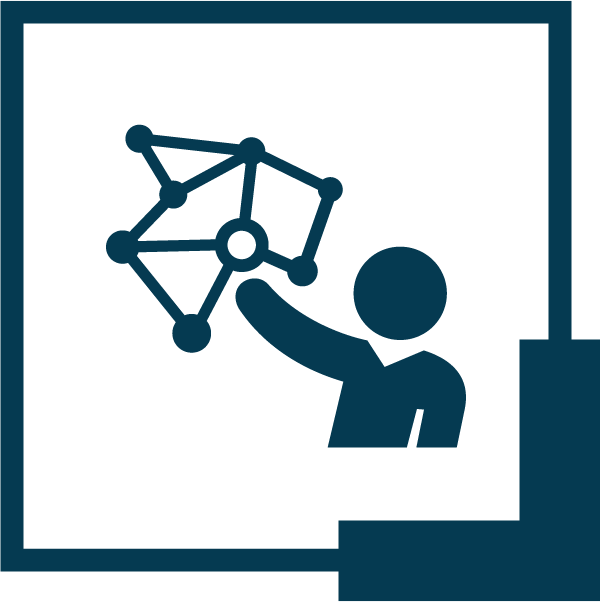The UK just entered into recession and the fear of the same is also looming over the USA.
Historically speaking, many countries may follow the same in the upcoming months.
But, hey! Do I want to scare you?
Nopes – But I do want to remind you how the world was shaken by the 2008 economic crash.
Did you know that 44% of small and medium sized businesses are taking no steps to safeguard them against reception?
But, you, my friend, are different. You took time out of your busy day to read this article.
Kudos!
And now that you’re here, together, we’ll look at how having a mobile app in recession can help you through the tough time and beyond.
Lower Training Costs
In a recession, businesses often tighten their belts, but employee training and development remain crucial. This is where mobile apps come into play, offering a cost-effective solution. With the rise of E-platform software, training is becoming less time-consuming and more accessible.
At the heart of this digital shift is the Learning Management Systems (LMS), which enable collaboration between trainers and trainees, track progress, and assess training outcomes.
Integrating various training tools into your mobile app is pretty straightforward. You can include training videos and presentations, gamification for engaging learning experiences, surveys and quizzes for feedback and assessment, virtual conferences for remote learning, and much more.
Additionally, an app consolidates all training materials into one reliable resource, offering well-defined learning suggestions. This approach is extremely beneficial, as evidenced by 78% of employees who find it highly useful.
Improves Employee Retention Rate
During recessionary times, keeping employee turnover low is essential. The cost of replacing an employee can be staggering – typically 100% to 150% of the employee’s salary, and for executive roles, it can soar to 213%.
Well connected and engaged employees showcase a higher retention rate and a mobile app is a great tool for fostering the both. A Harvard Business Review study found that employees are 12 times more likely to feel connected to their colleagues and five times more likely to be part of high-performing teams when their organization supports internal networking.
A mobile app in recession can offer numerous features to keep your team engaged and informed. It allows employees to stay updated on company news, receive important notifications directly on their phones, and connect through employee message boards.
They can also easily access health and wellness resources, discover internal growth opportunities, and check payroll and benefits information. Additionally, such an app can bolster diversity, equity, and inclusion initiatives.
By providing a mobile app with these diverse benefits, your company demonstrates its commitment to being tech-savvy and innovative. This investment in your staff, especially during challenging economic times, underscores your care for them, making them less likely to seek opportunities elsewhere.

Boost Sales and Revenue
Mobile apps play an important part in improving sales and revenue, especially during tough times. A well-designed app not only retains existing customers but also attracts new ones.
Why? Because today, consumers prefer online shopping over visiting physical stores. By offering an exceptional mobile experience through your app, you can significantly increase sales by catering to customer preferences.
An app allows for the creation of a personalized shopping experience, giving customers a variety of choices and making their purchasing process smooth and hassle-free. Moreover, it enables you to keep your customers informed with notifications about new services, discounts, and special offers.
So it’s safe to say that mobile apps are an effective tool for fostering long-term relationships with customers, ultimately enhancing your business’s sales and revenue.
Increase Overall Productivity
History shows us that recessions often lead to a dip in workplace productivity. Deloitte’s analysis of ten recessions over 65 years confirms this trend, with a noticeable decrease in hourly output during these periods.
To keep your business thriving even in tough economic times, focusing on constant productivity is important. One effective strategy is task automation, achievable through workflow or self-service apps. For instance, automating routine tasks like time-off requests, scheduling, or HR processes can significantly boost efficiency. This approach not only saves time for employees, allowing them to focus on their core duties, but also streamlines HR functions.
Mobile HR apps have already started replacing time-consuming manual processes, freeing up staff to concentrate on higher-value activities. With an investment of approximately $2-3K per month in a mobile app in recession, you can increase output and potentially save a substantial amount in labor costs.
Improved Supply Chain Management
In a recession, optimizing your supply chain becomes critical for maintaining profitability. A mobile app dedicated to supply chain functions can offer several advantages:
Real-Time Inventory Tracking: The app can provide real-time updates on inventory levels, helping to avoid overstocking or stockouts. This leads to more efficient inventory management, saving costs, and ensuring product availability.
Vendor Management: It can streamline communication with suppliers, making it easier to negotiate better terms, manage orders, and handle logistics. This enhances relationships and can lead to more favorable pricing or payment terms.
Automated Ordering Systems: Integrating automated ordering systems within the app can help in maintaining optimal inventory levels, reducing manual errors, and saving time.
Analytics for Demand Forecasting: The app can analyze sales data to forecast future demand, helping to make informed decisions about production and inventory levels, avoiding excess production or shortages.

3 Steps to Future-Proof Your Business with Mobile Apps
Assess and Plan Your App’s Purpose: Clearly define what your mobile app will achieve for your business. Whether it’s improving customer engagement, streamlining operations, or providing a new service channel, having a focused goal ensures the app adds real value.
Partner with a Mobile App Development Company: Collaborating with experts can be more cost-effective, especially in a recession. A reputable app development company brings expertise, reduces the risk of costly mistakes, and accelerates the development process, ensuring a high-quality product that aligns with your business objectives.
Implement a Lean Development Approach: Focus on developing a Minimum Viable Product (MVP) first. This approach allows you to launch a functional app with essential features quickly and cost-effectively. You can then gather user feedback and iterate, gradually adding more features and improvements based on real-world usage and needs.
Why You Should Have a Mobile App (Even When There’s no Recession)
Cost Efficiency: Unlike traditional advertising, which can be expensive and less targeted, mobile apps provide a direct channel to customers. This means businesses can reach their audience more effectively without breaking the bank.
Better Brand Visibility: Your app puts your business in the pocket of customers worldwide, offering a platform to showcase products or services beyond local boundaries. This global exposure lets you tap into new markets, especially when local economies are struggling.
Better Insights: Through data collection and analysis of app tracked user interactions and preferences, businesses can gain a deeper understanding of customer behavior. This information is crucial for tailoring marketing strategies, optimizing product offerings, and making informed decisions about pricing.
What’s Next?
And that’s a wrap!
We covered all the most vital causes that make having a mobile app integrated to your system necessary in the time of recession.
If you’re reading till the end, I’m sure you’re serious about not just surviving but thriving even if recession hits the market anytime soon.
So what’s next?
If you don’t have a dedicated developer working with you, your first step should be running a spot check for the best mobile app development companies and selecting a partner that fits your unique needs.
We, at Segwitz, have established ourselves as not just another development company but your very own tech strategist and partner.
From conceptualization to pushing the last bit of code to beta testing, we’ll help you cruise through with absolute ease.
Feel free to reach out to us in case you need help preparing for the uncertain times ahead.
And while you’re here, don’t forget to check out our library of tech and development blogs designed to put you ahead in the game.





 Booking System
Booking System eCommerce
eCommerce On-Demand Services
On-Demand Services Community App
Community App Ordering App
Ordering App Loyalty App
Loyalty App Online Learning
Online Learning Directory
Directory Marketplace
Marketplace SaaS
SaaS P2P Platform
P2P Platform eHailing
eHailing Healthcare
Healthcare Finance
Finance Logistics
Logistics Education
Education Food & Beverage
Food & Beverage Retail
Retail FMCG
FMCG Sports
Sports Travelling
Travelling Manufacturing
Manufacturing Renewable Energy
Renewable Energy Mobile Application Development
Mobile Application Development Web Application Development
Web Application Development Source Code Review
Source Code Review Internet of Things (IoT)
Internet of Things (IoT) Cyber Security
Cyber Security SegWitz SandBox – Dev-Team as Subscription
SegWitz SandBox – Dev-Team as Subscription SegWitz Streamline – SOP Systemization
SegWitz Streamline – SOP Systemization SegWitz ScaleUp – Tech Transformation of SME & PLC
SegWitz ScaleUp – Tech Transformation of SME & PLC SegWitz StartUp – MVP & Scaling
SegWitz StartUp – MVP & Scaling